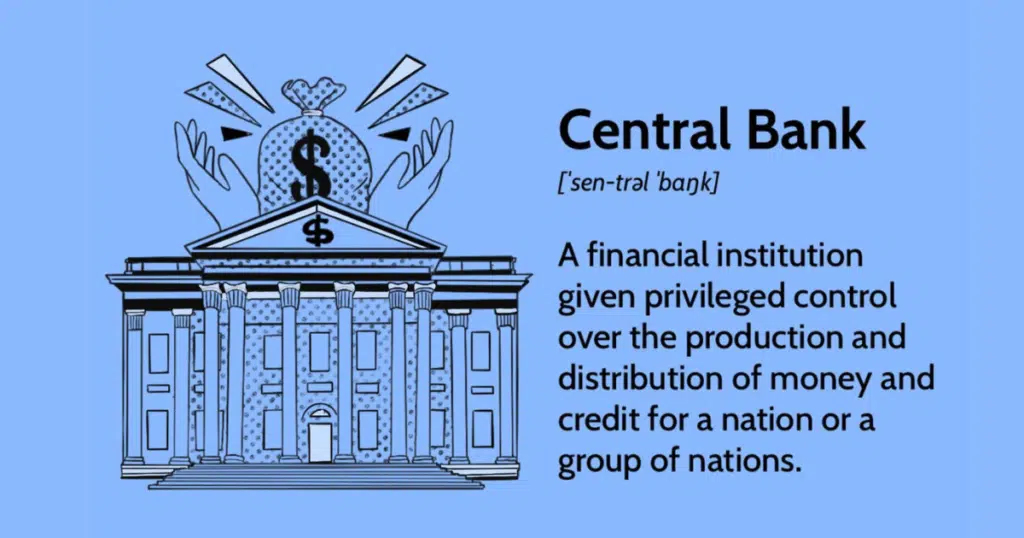Understanding Central Banks
A central bank is a financial institution that holds the authority to control the creation and distribution of money and credit within a nation or an economic union of nations.
In modern economies, the central bank plays a crucial role in formulating and implementing monetary policies and regulating commercial banks operating within its jurisdiction.

Shaping Economies through Money Supply
Central banks can adjust the money supply to either expand or contract it, which affects the cost and availability of credit.
They achieve this control by issuing fiat currency and influencing interest rates on loans and bonds.
Central banks aim to stimulate or manage economic growth, industrial activity, and consumer spending by raising or lowering interest rates.
These decisions are made with specific goals in mind to guide the development of the national economy.
Beyond Monetary Control to Crisis Intervention and Regulation
Furthermore, central banks hold a country’s foreign exchange reserves, which can be utilized to support liabilities or shape monetary policies.
During times of financial crisis, a central bank may act as a lender of last resort, assisting troubled financial institutions or the government.
In addition to their monetary policy role, central banks regulate member banks by implementing measures such as capital and reserve requirements and enforcing policies like deposit guarantees.